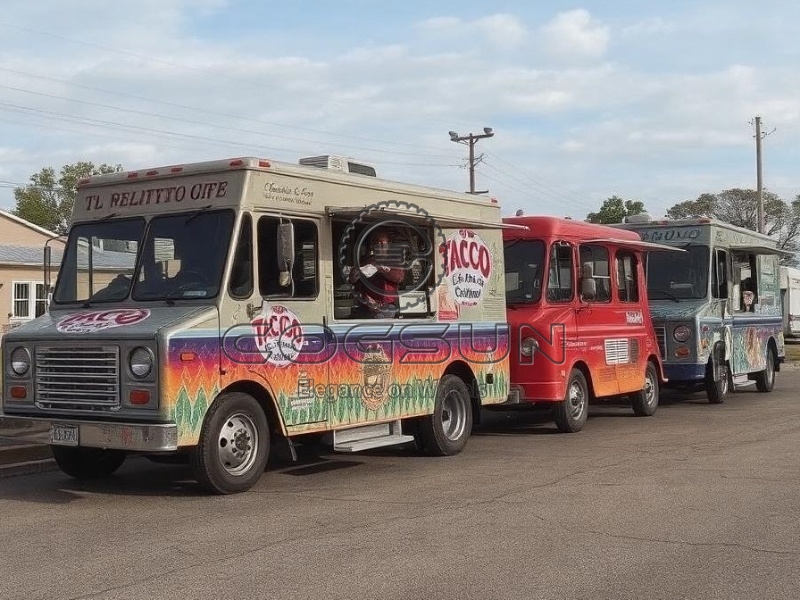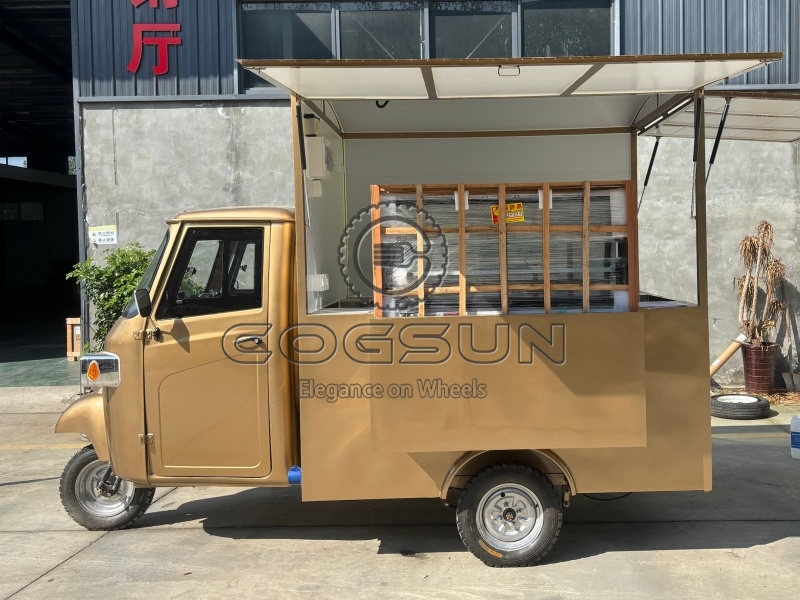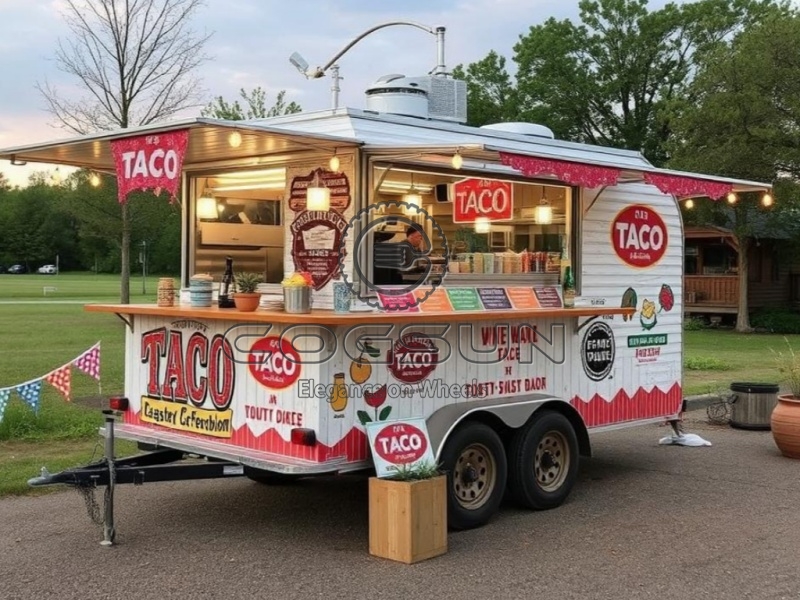In the fast-paced world of urban life, taco trucks have become iconic symbols of urban street culture with their flexibility, creative cuisine, and social connections. From Los Angeles to Shanghai, these colorful mobile kitchens not only provide diners with a convenient dining experience, but are also reshaping the restaurant industry with their unique business model.

Core Features
1.Efficient Delivery System
- Combination of Pre-made and Freshly Prepared Meals: Pre-assembled tortillas, sauces, and other bases are quickly assembled upon customer order, enabling a single truck to deliver up to 300-500 meals per day.
- Smart Ordering Terminal: Select models feature a touchscreen self-service ordering kiosk with multilingual support, reducing queue times.
2.Environmentally Friendly and Energy-Saving Design
- Electric Drive Option: Utilizes a new energy chassis to reduce operating costs and comply with city environmental regulations.
- Solar Power Assist: Rooftop solar panels power lighting and refrigeration, reducing generator noise pollution.
3.Food Safety Assurance
- Fully Enclosed Food Storage: Separate refrigerators/freezers store fresh and prepared food, with real-time temperature monitoring.
- UV Disinfection System: Automatically activates at the end of each day to deep-clean work surfaces and tools.
4.Data-Driven Operations
- A built-in POS system records sales data, analyzes peak hours and popular dishes, and optimizes procurement and scheduling.
- Orders can be accepted from food delivery platforms, and automatic ticket issuance is available via the onboard printer, enabling dual-channel profitability through both dine-in and delivery.

Application
1.Urban Street Economy
- Pull-over near office buildings and subway stations to meet the needs of office workers for quick lunches.
- A core component of the nighttime economy, complementing bars and night markets to extend consumption time.
2.Large-Scale Events and Festivals
- Pop-up stores at temporary events such as music festivals and food festivals attract crowds, generating revenue of tens of thousands of yuan per day.
- Customized menus for corporate events (such as vegetarian tacos and low-calorie options) expand B2B partnerships.
3.Brand Marketing and Cross-Border Collaboration
- Collaborating with fast-moving consumer goods brands to launch limited-edition flavors (such as cola-flavored sauce and spicy taco chips) creates buzz;
- Partnering with movie and game IPs, the vehicle’s paint job and peripheral products are simultaneously promoted to create an immersive experience.
4.Cultural Tourism and Rural Revitalization
- Specialized dining facilities at tourist attractions become popular tourist destinations;
- Participating in the government’s “Rural Revitalization Plan,” the company provides mobile food workshops to train local residents and drive employment.




